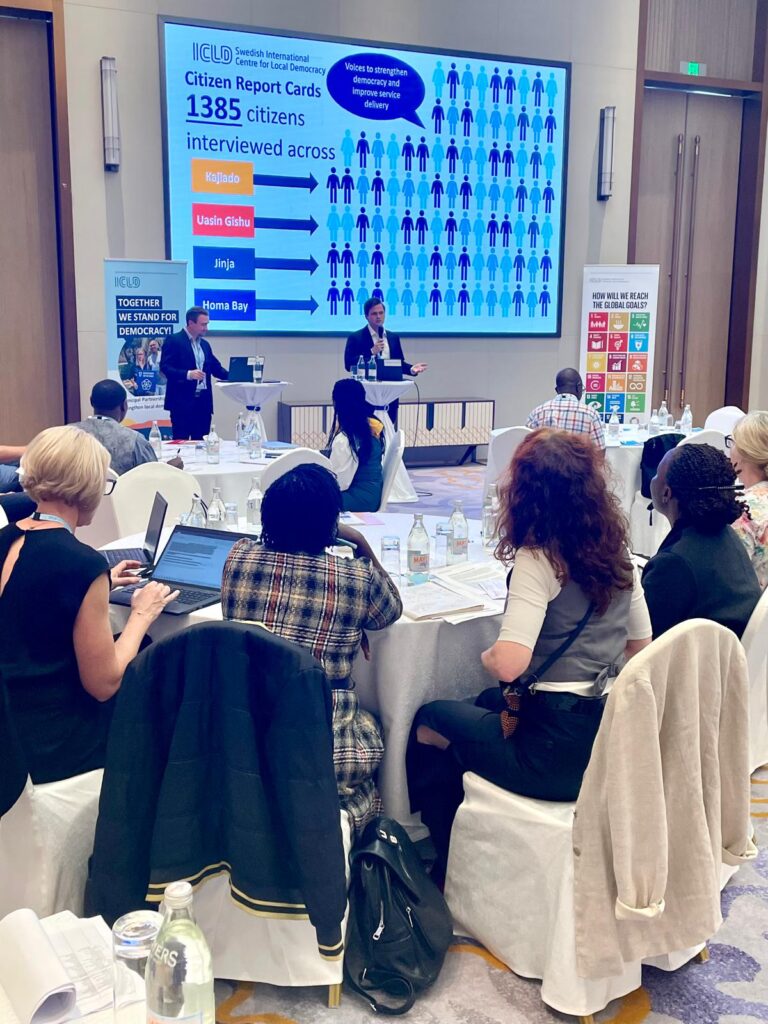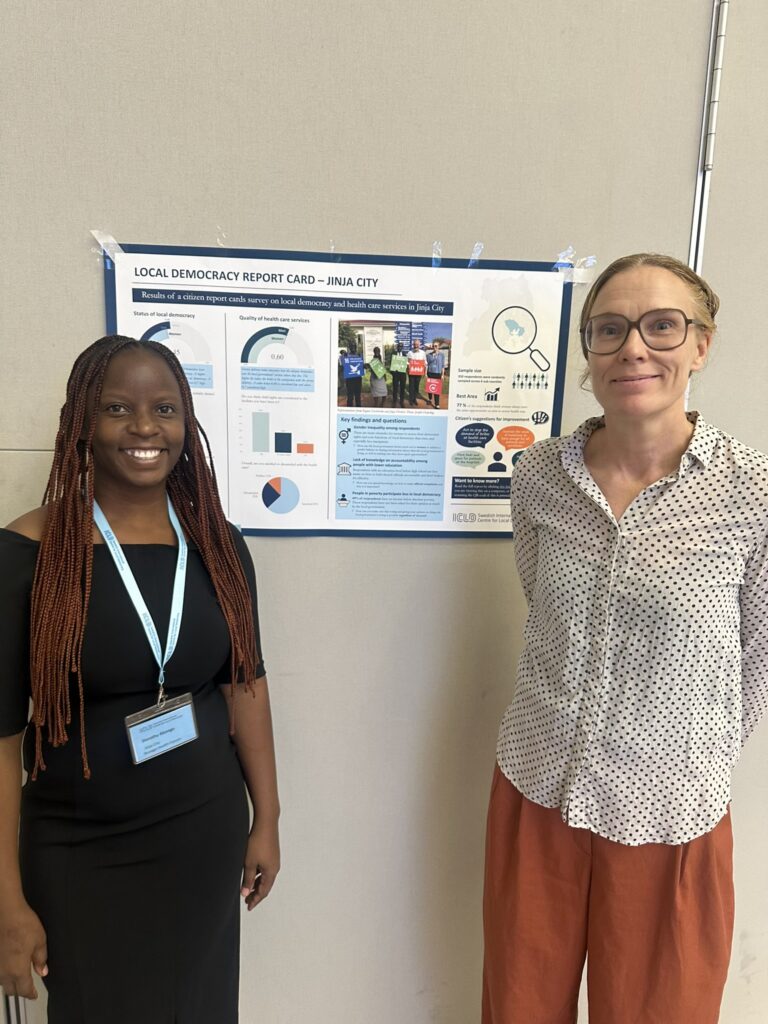The Citizen Report Card (CRC) survey in Jinja District, Uganda, was conducted to assess local democracy and health care services, particularly child health care. The survey is part of ICLD’s Municipal Partnership Programme (MPP), which partners Jinja with Region Stockholm in Sweden to improve health care services. Through this survey, citizens in Jinja have the opportunity to provide feedback on their experiences with local governance and public services.
Survey Process
The survey was conducted across 350 households in Jinja District using a stratified random sampling method. The respondents, aged 15 and above, were selected from both urban and rural areas, ensuring the sample represented the district’s demographics. The survey measured key areas of local democracy—participation, transparency, accountability, and equity—along with questions related to health care services.
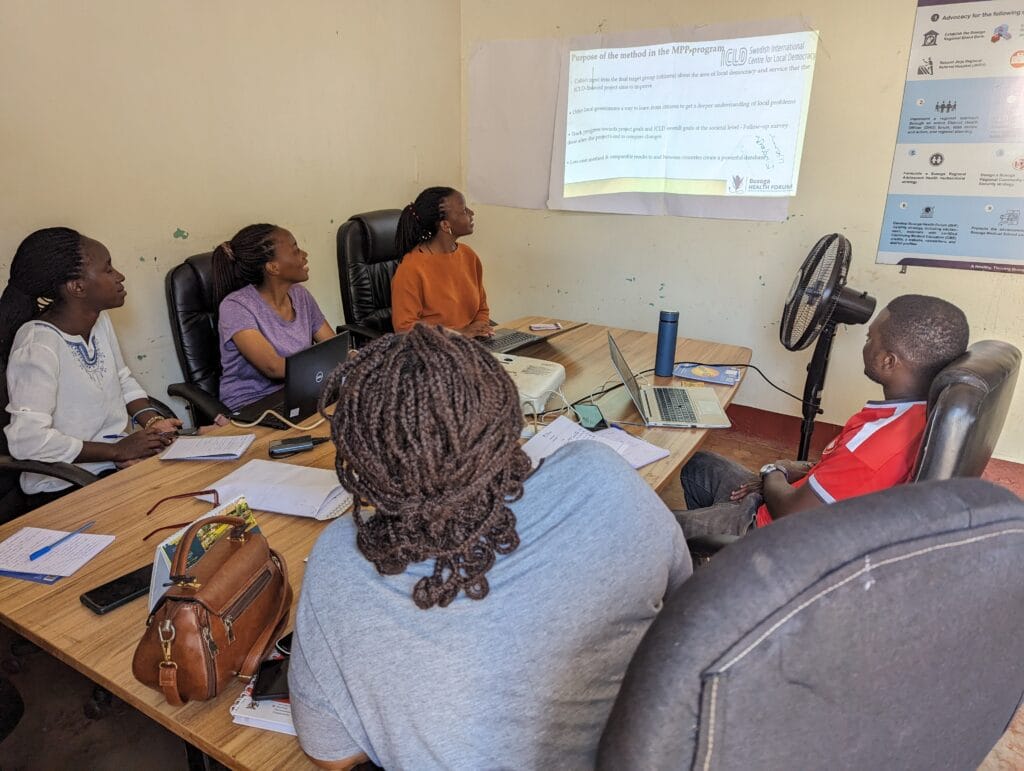
Enumerators in a Training Session, Photo: Dorothy Akongo
Demographic Profile of Respondents
- 76% of respondents were female, and 24% were male.
- 49% of respondents lived below the absolute poverty line.
- 52% of respondents had completed high school or had higher education, while 35% were youth aged 15-17 years.
- Most respondents lived in city areas, with only 10% reporting that they lived in rural areas.
Key Findings
1. Participation in Local Democracy
- The Participation Index showed a low average score of 0.18, with only 1 in 10 respondents having been asked for their opinion on local issues.
- Women, respondents with lower education, and those living below the poverty line participated less in local decision-making processes.
2. Transparency and Accountability
- The Transparency Index had an average score of 0.60, with women and residents in urban areas finding it harder to access information about local government programs, services, and budgets compared to those in suburban and rural areas.
- The Accountability Index showed that 83% of respondents believed submitting an official complaint was a useful way to influence local government. However, women and those with lower education were less aware of how to submit complaints.
3. Health Care Services
- The Service Delivery Index for health care had an average score of 0.60, indicating that respondents were slightly more satisfied than dissatisfied with health care services in Jinja.
- Unemployed respondents were more satisfied with health care services than other groups.
- Key issues included lack of medicine, long waiting times, and non-engaged health workers. Respondents also mentioned the need for improved infrastructure and more medical supplies.
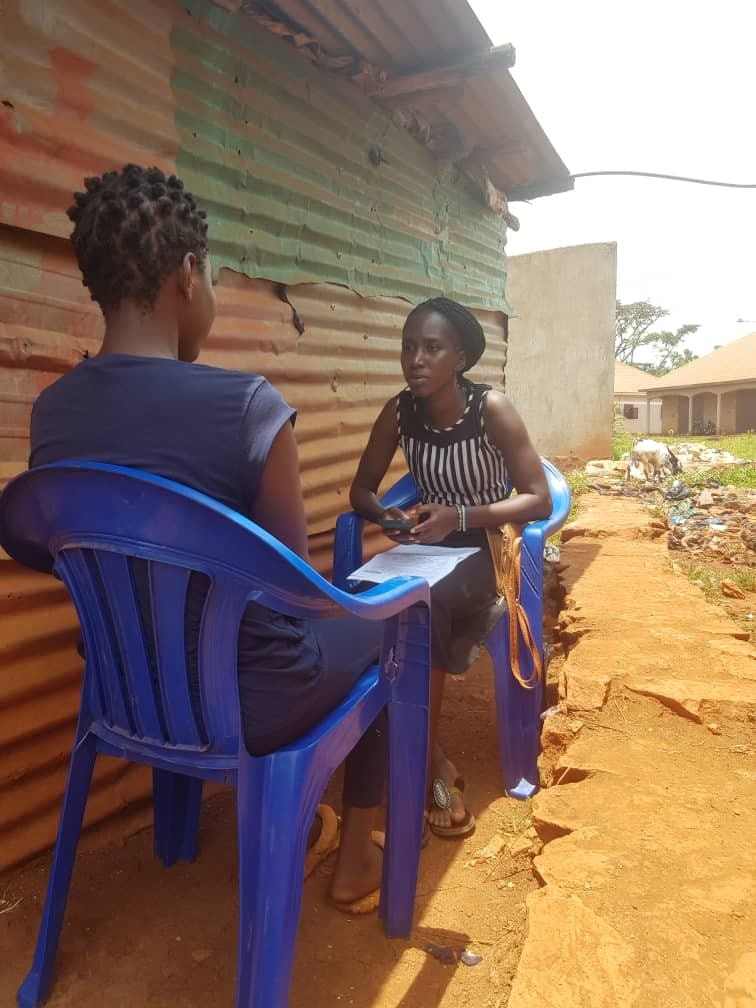
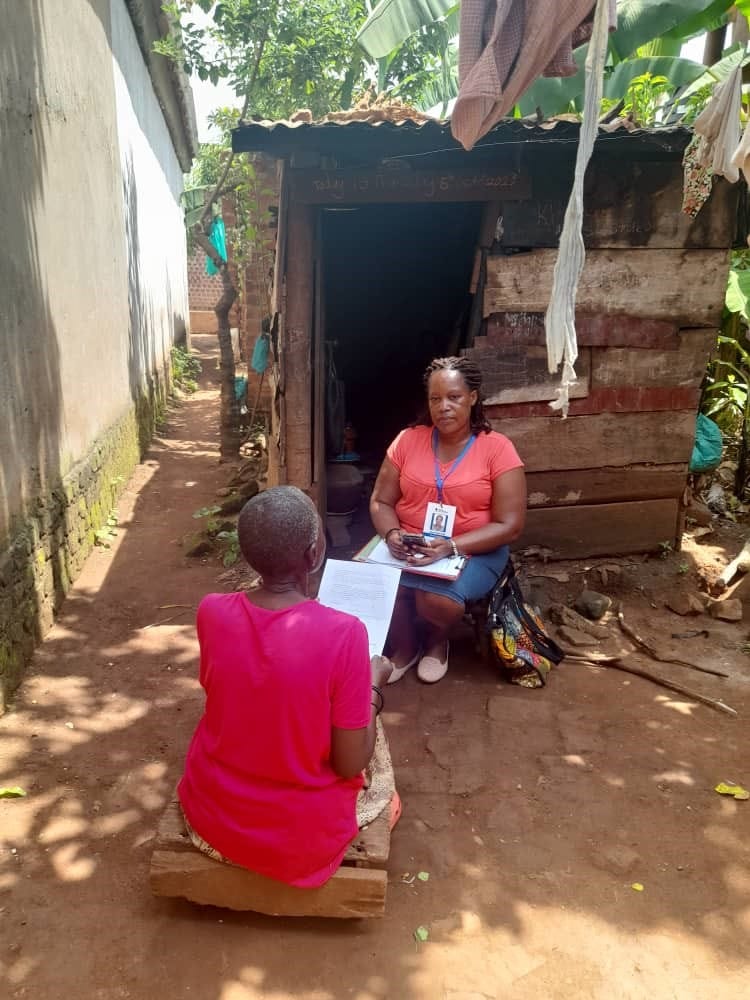
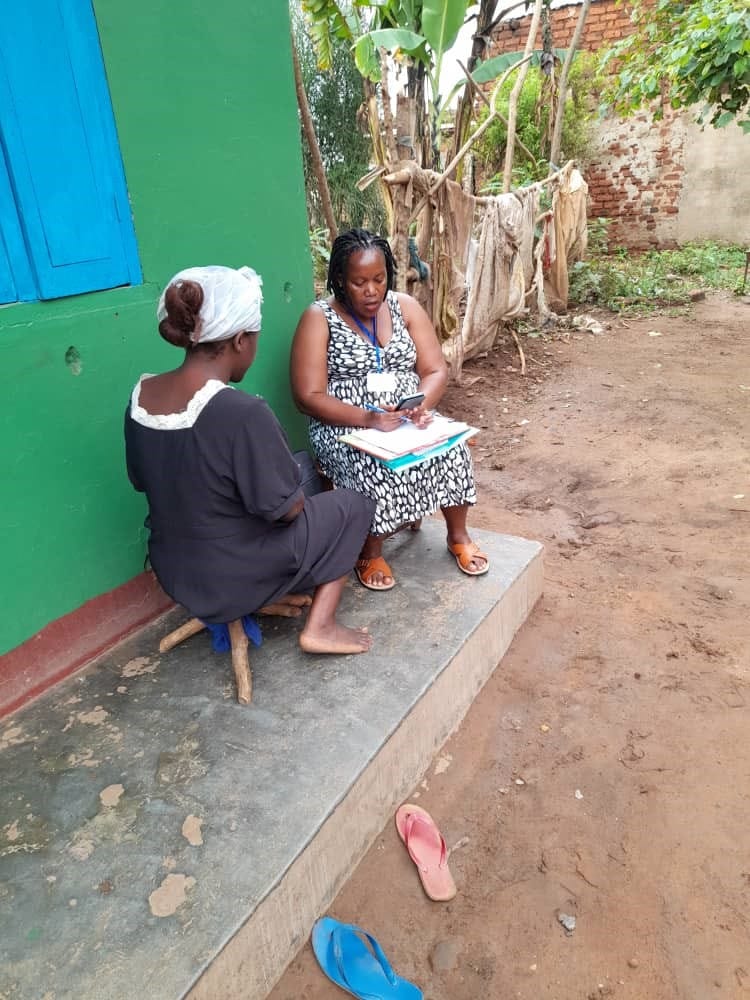
Key Takeaways and Recommendations
- Improving Participation and Information Access: Efforts should be made to improve citizen participation, particularly among women, lower-income residents, and those with lower education. Providing better access to information about local government decisions and services is also crucial.
- Health Care Services: While health care satisfaction levels were moderate, respondents pointed out several areas needing improvement, such as more medical supplies, better treatment from health workers, and reduced waiting times.
- Addressing Gender Inequities: Women faced more barriers to accessing information and participating in local democracy. Special efforts are needed to empower women in the decision-making process and improve their access to government services.
The Citizen Report Card provides the local government of Jinja with valuable insights to help enhance local democracy, improve health care services, and address the needs of marginalized groups in the community.
Deepening Insights: Focus Group Discussions as a Follow-Up to Citizen Report Cards in Jinja
The Focus Group Discussions (FGDs), conducted as a follow-up to the Citizen Report Card (CRC) survey in Jinja, revealed critical gaps in local democracy and public service delivery. Citizens expressed frustration with inadequate health care services, poor transparency in local governance, and limited participation opportunities, especially for women and youth. Key issues included insufficient medical supplies, lack of access to clean water, and barriers to accessing government programs due to corruption and poor communication. Despite these challenges, participants highlighted the growing awareness of available services and proposed actionable solutions, such as community radios, dedicated complaint offices, and stronger engagement in decision-making processes. Attached is the detailed report capturing these insights and recommendations.
Showcasing Results: Jinja CRC at the Equitable Health Network Conference in Nairobi
In October 2024, ICLD held an Equitable Health Network Conference held in Nairobi, Kenya, where the results of the Jinja Citizen Report Card (CRC) survey were shared with attendees. Representing the Municipal Partnership between Jinja District and Region Stockholm, Dorothy Akongo and Helena Hildenwall presented the findings, showcasing the collaborative efforts to improve local democracy and health care services. Here are their photos with the CRC poster.
